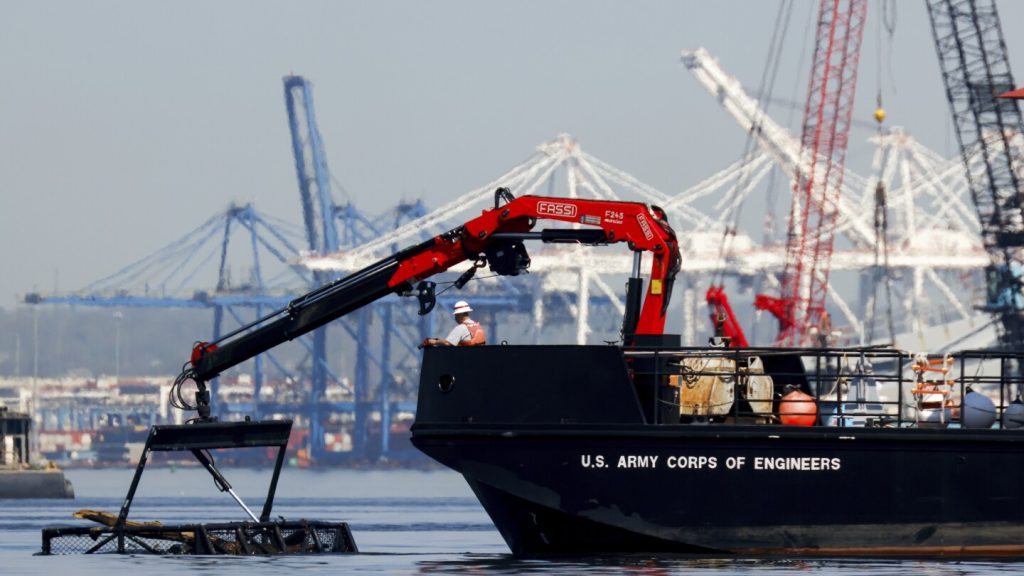The city of Baltimore is set to open a deeper channel for commercial ships to enter and leave the port starting on Thursday, following the collapse of the Francis Scott Key Bridge last month. The new channel will be 35 feet deep, allowing larger cargo ships to pass through, and is ahead of schedule in the cleanup effort. The reopening of the port is a significant step towards restoring normal maritime shipping operations in the area, which is a major hub for processing cars and farm equipment in the country. The collapse of the bridge had caused significant disruptions to the port’s operations and the local economy.
The cargo ship involved in the bridge collapse, named the Dali, remains grounded amid the wreckage as crews work to clear debris and remove massive pieces of steel from the ship’s deck. The incident resulted in the tragic deaths of six roadwork crew members, all Latino immigrants from Mexico, Guatemala, El Salvador, and Honduras. While four bodies have been recovered, two are still missing. Family members of the victims have been granted visitor visas to enter the U.S. for memorial services and to potentially bring their loved ones back home for burial. Immigrant aid organizations are assisting the families during this difficult time.
Salvage crews have cleared over 2,900 tons of debris so far to open the new channel to “commercially essential vessels” from Thursday until the following Monday or Tuesday. Strict regulations will be in place for ships passing through the channel, including having a Maryland pilot on board and two tugboats escorting them. The passage will be closed again temporarily while crews work to remove steel from the Dali and refloat the ship, with the main channel set to reopen next month after the ship has been removed. Officials emphasize the importance of ensuring the safety and efficiency of the cleanup efforts to restore normal marine traffic in the area.
In response to the bridge collapse, Baltimore’s mayor and city council have filed a court petition calling for the Dali’s owner and manager to be held fully liable for the incident. They argue that the economic impacts of the collapse could be devastating for the region, as the port has historically been a major economic driver for Baltimore and the surrounding area. The filing is in response to an earlier petition from the two companies asking for their liability to be capped under a pre-Civil War provision of an 1851 maritime law, with a federal court in Maryland ultimately tasked with determining responsibility and compensation amounts. The situation underscores the importance of maintaining safety and accountability in the maritime industry to prevent such tragedies from occurring in the future.


